Best Ai Marketing Tools: Top Picks to Boost Your Campaigns Now
Unlock the full potential of your marketing efforts with AI. This comprehensive guide cuts through the clutter, presenting a meticulously curated selection of the top AI marketing tools designed to streamline your workflows, amplify your reach, and significantly boost your campaign performance right now.
Stop guessing and start leveraging the power of intelligent automation for superior results.
Why AI is Your Marketing Superpower Now
Forget the future; AI is your marketing present. We’re past the point where artificial intelligence was a niche curiosity for tech giants. Today, it’s an indispensable toolkit for marketers of all sizes, transforming the very fabric of how campaigns are conceived, executed, and optimized.
So, why is AI your must-have superpower right now?
- Unprecedented Efficiency & Automation: Imagine automating repetitive, time-consuming tasks like data analysis, content generation (for drafts), email segmentation, and ad bidding. AI tools handle these with lightning speed and accuracy, freeing up your team to focus on strategy, creativity, and high-level decision-making. No more manual sifting through spreadsheets; AI does the heavy lifting.
- Hyper-Personalization at Scale: Consumers expect tailored experiences. AI makes this possible by analyzing vast amounts of user data to understand individual preferences, behaviors, and buying patterns. This allows you to deliver highly relevant content, product recommendations, and offers to each customer, fostering deeper engagement and stronger loyalty – something impossible to achieve manually across millions of touchpoints.
- Superior Data-Driven Insights: We’re drowning in data, but without AI, much of it remains untapped. AI algorithms can identify subtle trends, predict future outcomes (like customer churn or purchase intent), and uncover hidden opportunities that human analysis might miss. This predictive power allows you to make proactive, informed decisions rather than reactive ones, leading to more effective campaigns and a higher ROI.
- Optimized Performance & ROI: From A/B testing variations to optimizing ad spend across multiple platforms in real-time, AI continuously learns and adapts to improve campaign performance. It can identify the best performing ad creatives, target audiences, and even optimal times to send emails, ensuring every marketing dollar works harder and smarter.
In an increasingly competitive digital landscape where consumer attention is fleeting and data volumes are exploding, leveraging AI isn’t just an advantage – it’s a necessity. It’s the difference between guessing and knowing, between keeping up and leading the pack. Your competitors are already adopting it; can you afford not to?
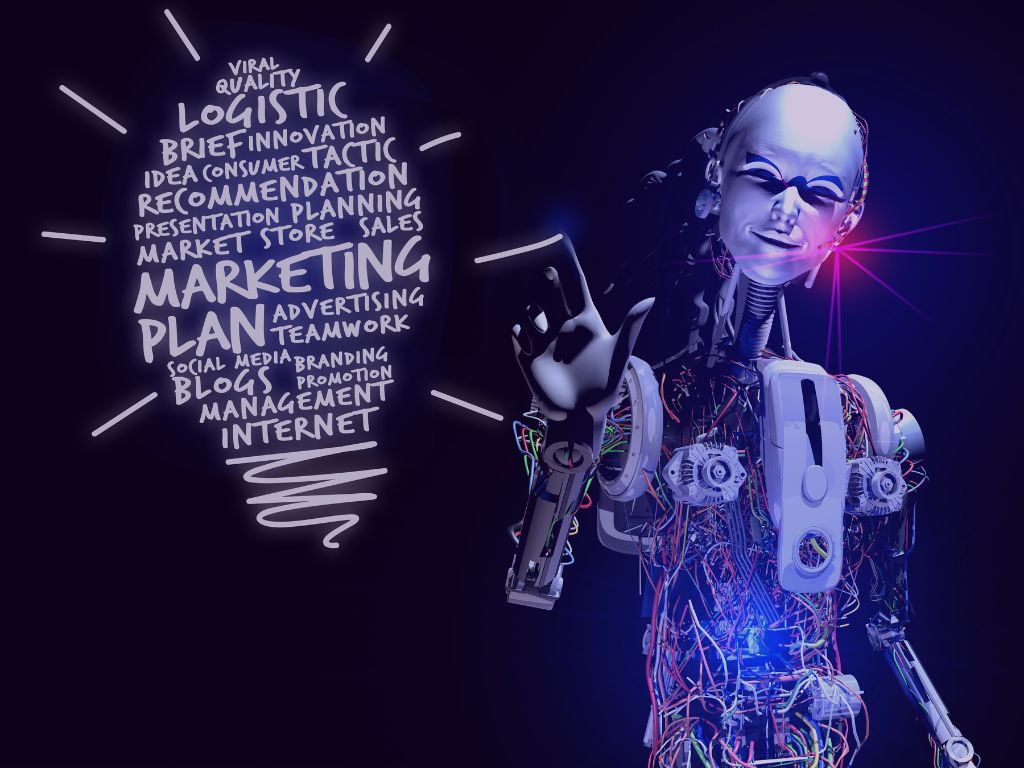
Understanding the Core of AI Marketing Tools
At its heart, an AI marketing tool isn’t just another piece of software; it’s an intelligent system designed to process, analyze, and act upon vast amounts of data with a speed and precision impossible for humans. Think of it as your marketing brain’s supercharger, taking on the complex, repetitive, and data-heavy tasks so you can focus on strategy and creativity.
These tools leverage sophisticated algorithms, machine learning (ML), and sometimes natural language processing (NLP) to perform a range of critical functions:
- Data Ingestion & Interpretation: They can pull in data from countless sources – CRM, website analytics, social media, ad platforms, email campaigns – and not just store it, but understand it. This involves identifying relationships, correlations, and anomalies that would be hidden in a traditional spreadsheet.
- Pattern Recognition & Prediction: This is where the “intelligence” truly shines. AI identifies recurring patterns in customer behavior, market trends, and campaign performance. Based on these patterns, it can then make highly accurate predictions about future outcomes, such as which customers are likely to churn, what content will resonate best, or which ad creative will perform optimally.
- Automated Decision-Making & Execution: Equipped with insights, AI tools can then automate actions. This could be anything from dynamically adjusting ad bids in real-time, segmenting an email list based on predictive churn risk, personalizing website content for individual visitors, or even drafting initial content ideas.
- Continuous Learning & Optimization: Unlike static software, AI tools are designed to learn from every interaction and data point. If an ad performs poorly, the AI understands why and adjusts its strategy. If a content piece generates high engagement, it incorporates that learning into future recommendations. This iterative process ensures campaigns are constantly improving and adapting to changing conditions.
In essence, AI marketing tools provide the muscle and the brainpower to turn raw data into actionable insights and automated efficiencies, transforming your marketing efforts from guesswork into a data-driven science.
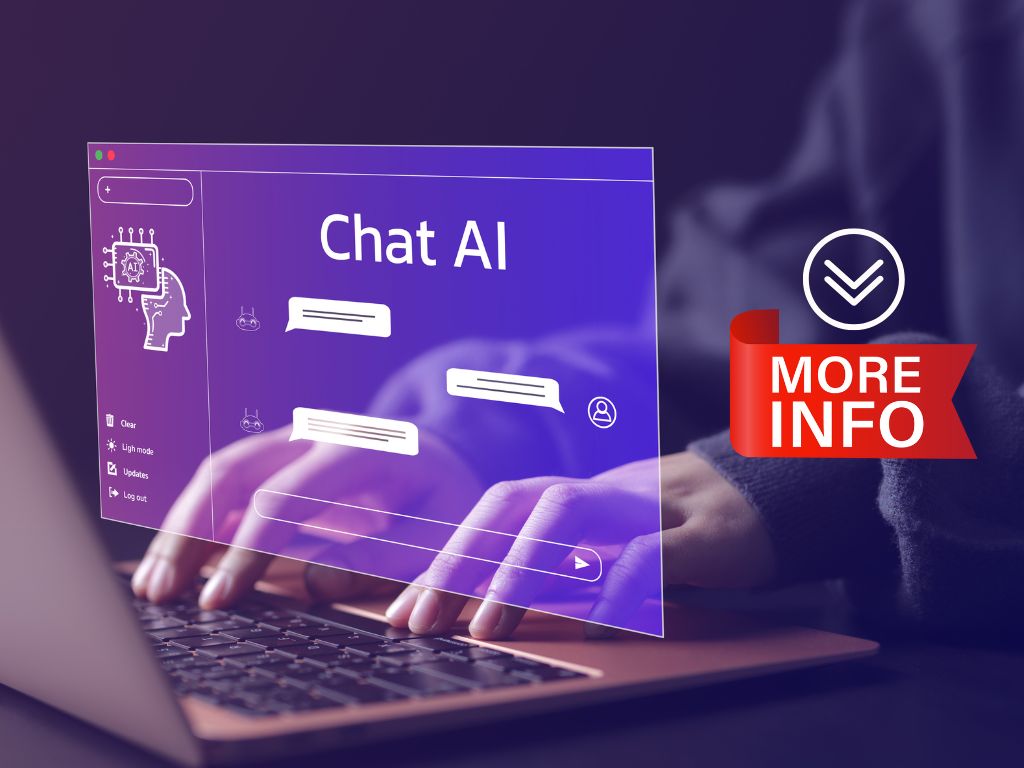
The Game-Changing Benefits of AI for Your Campaigns
While we’ve established the foundational necessity of AI, its true ‘game-changing’ power lies in how it fundamentally reshapes your marketing landscape, delivering transformative benefits that move beyond mere efficiency. These aren’t just incremental improvements; they are paradigm shifts:
- Deepened Customer Understanding & Relationship Building: AI moves beyond basic segmentation to create a truly personalized customer journey. By analyzing vast datasets of individual behaviors, preferences, and interactions, AI tools can predict needs, anticipate churn, and recommend the precise content or product at the perfect moment. This hyper-relevance fosters stronger emotional connections, drives deeper engagement, and significantly boosts customer loyalty and lifetime value – turning casual buyers into brand advocates.
- Unprecedented Strategic Foresight & Agility: Imagine knowing what your customers will do before they do it, or identifying market opportunities before your competitors even see them. AI’s predictive analytics capabilities empower you with this foresight. It identifies subtle trends, forecasts future outcomes (like campaign performance or emerging demand), and highlights potential risks. This proactive intelligence allows you to adapt strategies in real-time, pivot campaigns swiftly, and seize competitive advantages with unparalleled speed and precision.
- Maximized Resource Efficiency & Unlocked ROI: AI isn’t just about saving time; it’s about making every marketing dollar and every minute of human effort work harder. By automating complex, data-intensive tasks – from optimizing ad bids across multiple platforms to identifying the most profitable audience segments – AI ensures your resources are allocated optimally. It minimizes waste, eliminates guesswork, and continuously refines campaigns for peak performance, directly translating into a significantly higher return on investment (ROI).
- Empowering Marketers for Higher-Value Work: Far from replacing human ingenuity, AI acts as a powerful co-pilot. By taking over the repetitive, analytical heavy lifting, AI frees up your marketing team to focus on what humans do best: strategic thinking, creative ideation, compelling storytelling, and building genuine brand connections. It transforms the marketing role from operational to truly strategic, allowing your team to innovate, explore new ideas, and drive the overarching vision of your brand.
Top Pick: AI Tools for Content Creation & Curation
Content is the lifeblood of modern marketing, but keeping up with the relentless demand for fresh, engaging, and relevant material can be a monumental challenge. This is where AI truly shines, transforming the content creation and curation process from a bottleneck into a powerful engine for your campaigns.
AI-powered content tools act as your tireless co-writers, researchers, and strategists, dramatically accelerating your output while ensuring quality and relevance. They tackle the most time-consuming aspects of content, freeing up your team to focus on the unique insights and creative flair that only humans can provide.
Here’s how AI is revolutionizing content:
- Idea Generation & Brainstorming: Stuck on what to write next? AI can analyze trending topics, competitor content, and audience questions to suggest endless content ideas, blog post outlines, and even entire content calendars. It helps you identify keyword gaps and explore new angles you might have missed.
- First Drafts in Minutes: From blog posts and articles to social media captions, email subject lines, and ad copy, AI writing assistants can generate coherent and grammatically correct initial drafts in a fraction of the time it would take a human. This eliminates writer’s block and provides a solid foundation for your team to refine and personalize.
- SEO Optimization & Readability: AI tools can analyze your content for SEO best practices, suggesting keywords, optimizing meta descriptions, and improving readability scores. They ensure your content is not only engaging but also discoverable by your target audience on search engines.
- Content Repurposing & Adaptation: Got a long-form blog post? AI can instantly transform it into short social media snippets, email newsletter sections, video scripts, or even podcast outlines, maximizing the value of every piece of content you create.
- Personalization at Scale: Deliver highly relevant content to individual audience segments by leveraging AI to dynamically adapt messaging, product recommendations, and calls-to-action based on user behavior and preferences.
- Efficient Content Curation: Beyond creation, AI excels at sifting through vast amounts of information to identify relevant articles, industry news, and user-generated content that aligns with your brand and audience interests. This makes it easier to share valuable third-party content, enriching your feeds and establishing your brand as a thought leader.
By automating the mundane and data-intensive aspects of content, AI empowers marketers to scale their content efforts like never before, ensuring a consistent stream of high-quality, optimized material that resonates deeply with their audience. It’s not about replacing the human touch, but amplifying its impact, allowing your creative vision to reach its full potential.

Top Pick: AI Tools for SEO & Analytics Optimization
In the complex world of search engine optimization and data analytics, where algorithms constantly shift and data streams are overwhelming, AI isn’t just a helper – it’s your essential guide. These tools cut through the noise, providing clarity, precision, and actionable insights that empower you to rank higher, understand your audience better, and drive superior performance.
For SEO, AI means moving beyond guesswork to data-driven dominance:
- Intelligent Keyword Research & Strategy: Forget tedious manual keyword hunting. AI tools analyze vast datasets, identify emerging trends, uncover long-tail opportunities, and even predict keyword performance. They help you understand search intent with unparalleled accuracy, ensuring your content truly resonates with what users are looking for.
- Hyper-Optimized Content Creation: AI goes beyond basic keyword stuffing. It analyzes top-ranking content, suggests optimal content structures, recommends ideal keyword density, and ensures readability. Some tools can even help you generate optimized meta descriptions, titles, and internal linking strategies, ensuring every piece of content is primed for search engines.
- Proactive Technical SEO Audits: AI can tirelessly crawl your website, identifying technical SEO issues like broken links, crawl errors, site speed bottlenecks, and duplicate content far faster and more comprehensively than humanly possible. It then provides specific, actionable recommendations for improvement, keeping your site healthy and search-engine friendly.
- Competitor Analysis & Backlink Opportunities: Gain a significant edge by letting AI dissect your competitors’ SEO strategies. It can uncover their most profitable keywords, analyze their backlink profiles to identify high-authority link opportunities, and reveal content gaps you can exploit.
When it comes to Analytics, AI transforms raw data into strategic foresight:
- Automated Data Interpretation & Anomaly Detection: Instead of sifting through endless spreadsheets, AI tools automatically highlight critical trends, sudden spikes or drops, and other anomalies in your data. This means you’re immediately alerted to potential problems or unexpected opportunities, saving countless hours of manual investigation.
- Predictive Insights & Forecasting: The true power of AI in analytics lies in its ability to predict future outcomes. Based on historical data and current trends, AI can forecast website traffic, conversion rates, customer churn, or even the success of an upcoming campaign. This foresight allows you to make proactive, informed decisions rather than reactive ones.
- Personalized Recommendations & Optimization: AI doesn’t just present data; it tells you what to do with it. Based on its analysis, it can suggest specific actions to improve campaign performance, optimize user journeys, or tailor content for individual segments, ensuring your efforts are always aligned with the highest potential ROI.
- Enhanced Attribution Modeling: Understand the true impact of each touchpoint in your customer’s journey. AI can process complex multi-channel data to provide more accurate attribution models, helping you allocate your marketing budget more effectively across different channels.
By integrating AI into your SEO and analytics workflows, you’re not just gaining efficiency; you’re gaining a strategic advantage. It allows you to move from simply tracking data to truly understanding it, predicting future outcomes, and making decisions with a level of precision and speed that was previously unimaginable.
Top Pick: AI Tools for Customer Engagement & Personalization
In today’s crowded digital landscape, generic messaging is a fast track to irrelevance. Consumers crave experiences that feel uniquely designed for them, and AI is the only way to deliver true hyper-personalization at scale. AI tools for customer engagement and personalization are your secret weapon for transforming fleeting interactions into lasting relationships.
These intelligent platforms move beyond basic segmentation, diving deep into individual customer data to understand behaviors, preferences, and even emotional states in real-time. The result? Every touchpoint, from the moment a prospect lands on your site to post-purchase support, feels tailored, relevant, and genuinely helpful.
Here’s how AI is revolutionizing customer engagement and personalization:
- Dynamic Customer Profiling: Forget static personas. AI continuously analyzes vast amounts of data – purchase history, browsing behavior, social media interactions, email opens, support tickets – to build incredibly rich, evolving customer profiles. This allows for a granular understanding of each individual’s needs, interests, and stage in their journey, far beyond what manual analysis could ever achieve.
- Hyper-Personalized Content & Offers: Based on these dynamic profiles, AI tools can instantly adapt website content, product recommendations, email subject lines, ad creatives, and even pricing. Imagine a visitor seeing product suggestions that perfectly align with their recent searches, or receiving an email with a discount on an item they’ve shown interest in, all without any manual intervention. This level of relevance significantly boosts conversion rates and customer satisfaction.
- Intelligent Chatbots & Virtual Assistants: Gone are the days of clunky, rule-based chatbots. AI-powered conversational tools understand natural language, provide instant, accurate answers to complex queries, guide users through purchase processes, and even handle support issues. They offer 24/7 personalized assistance, improving response times, reducing customer frustration, and freeing up human agents for more complex tasks.
- Predictive Engagement & Churn Prevention: AI’s predictive capabilities are game-changers. By identifying subtle patterns in customer behavior, these tools can forecast future actions – like which customers are at risk of churning, or which are most likely to make a repeat purchase. This foresight enables proactive interventions, such as personalized re-engagement campaigns or loyalty offers, to retain valuable customers before they even consider leaving.
- Optimized Customer Journey Orchestration: AI can map, analyze, and optimize entire customer journeys across multiple channels. It identifies friction points, suggests improvements, and automates the delivery of personalized messages at the optimal time and through the preferred channel. This ensures a seamless, consistent, and highly engaging experience from awareness to advocacy.
By putting the customer at the absolute center of every interaction, AI-driven engagement and personalization tools don’t just improve metrics; they build trust, foster loyalty, and transform your audience into passionate brand advocates. It’s about creating relationships, not just transactions.

Top Pick: AI Tools for Ad Optimization & Campaign Management
Managing advertising campaigns across multiple platforms – from Google Ads and Facebook to LinkedIn and TikTok – is a complex, data-intensive challenge. The sheer volume of data, the need for real-time adjustments, and the constant pressure to maximize ROI make manual optimization an almost impossible feat. This is precisely where AI-powered ad optimization and campaign management tools become indispensable, acting as your ultimate strategic co-pilot.
These intelligent platforms transform ad management from a reactive, labor-intensive task into a proactive, data-driven science. They leverage sophisticated algorithms to analyze vast datasets, predict performance, and automate adjustments, ensuring every marketing dollar works harder and smarter.
Here’s how AI is revolutionizing ad optimization and campaign management:
- Automated Bidding & Budget Optimization: Forget manual bid adjustments. AI tools analyze real-time performance metrics like Return on Ad Spend (ROAS), Cost Per Acquisition (CPA), and conversion rates across all your campaigns and channels. They dynamically adjust bids, reallocate budgets to top-performing ads and audiences, and even predict future outcomes to ensure your spend is always optimized for maximum ROI. This goes beyond simple rules-based automation, as AI continuously learns and adapts.
- Hyper-Targeting & Audience Refinement: AI processes immense amounts of user data – including demographics, interests, behaviors, and historical interactions – to identify the most receptive audiences for your ads. It can uncover niche segments, predict purchase intent, and continuously refine targeting parameters, ensuring your ads reach the right people at the right time with unparalleled precision. This eliminates guesswork and significantly boosts ad relevance.
- Dynamic Creative Optimization (DCO): AI empowers you to move beyond static ad creatives. These tools can test countless variations of headlines, ad copy, images, videos, and calls-to-action simultaneously. They quickly identify which combinations resonate most with specific audience segments and automatically serve the highest-performing creatives, leading to higher click-through rates, better engagement, and improved conversion rates.
- Real-time Performance Monitoring & Anomaly Detection: AI constantly monitors your campaign performance, identifying subtle shifts, sudden drops, or unexpected spikes in data. It can alert you to potential issues before they escalate into major problems, or highlight new opportunities for scaling successful campaigns. This proactive intelligence allows for immediate adjustments, preventing wasted spend and capitalizing on emerging trends.
- Cross-Platform Integration & Unified Reporting: Many AI ad tools integrate data from all your major advertising platforms, providing a holistic, unified view of your performance. This eliminates data silos, simplifies reporting, and enables cross-channel optimization strategies, ensuring your campaigns work together synergistically.
- Predictive Analytics for Campaign Foresight: Beyond current performance, AI can forecast future outcomes. It predicts which campaigns are likely to succeed, which audiences will be most profitable, and even potential shifts in market demand. This foresight allows marketers to make proactive strategic decisions, allocate resources more effectively, and stay ahead of the curve.
By automating the complex, data-heavy aspects of ad management, AI frees up your team to focus on higher-level strategy, creative ideation, and truly understanding your customer. It’s not just about efficiency; it’s about unlocking a level of performance and profitability previously unattainable.
How to Choose the Best AI Marketing Tools for Your Business
So, you’re convinced AI is the future (and present!) of marketing – fantastic! But with a rapidly expanding galaxy of AI tools available, how do you pinpoint the ones that will truly propel your business forward? There’s no one-size-fits-all answer, but a strategic approach will ensure your investment yields maximum impact.
Here’s a practical guide to choosing the best AI marketing tools for your unique needs:
1. Define Your Core Challenges and Goals
Before you even start browsing, get crystal clear on what problems you’re trying to solve. Are you:
- Drowning in the demand for fresh content? (Look for AI content generation tools)
- Struggling to optimize ad spend and achieve better ROAS? (Focus on AI ad optimization platforms)
- Unable to personalize experiences at scale? (Explore AI-driven personalization and engagement tools)
- Missing critical SEO opportunities or drowning in analytics data? (Prioritize AI SEO and analytics solutions)
- Battling customer churn or slow support response times? (Consider AI chatbots and predictive churn tools)
Having specific pain points and measurable goals will narrow down your options significantly.
2. Assess Your Current Tech Stack & Integration Needs
AI tools aren’t meant to live in isolation. For maximum efficiency and data synergy, they need to play nicely with your existing marketing ecosystem.
- CRM: Does it integrate with Salesforce, HubSpot, or your custom CRM?
- Analytics: Can it pull data from Google Analytics, Adobe Analytics, or your data warehouse?
- Ad Platforms: Will it connect seamlessly with Google Ads, Facebook Ads Manager, LinkedIn Ads, etc.?
- Email Marketing: Does it integrate with your email service provider (ESP)?
Seamless integration prevents data silos, automates workflows, and ensures a holistic view of your customer and campaign performance. Look for native integrations, robust APIs, or Zapier compatibility.
3. Evaluate Ease of Use & Learning Curve
Even the most powerful AI tool is useless if your team can’t or won’t use it.
- User Interface (UI): Is it intuitive, clean, and easy to navigate?
- Onboarding & Training: What resources does the vendor provide to get your team up to speed?
- Team Adoption: Consider your team’s technical proficiency. Some tools are designed for data scientists, while others are built for everyday marketers. Prioritize tools that empower your team rather than overwhelm them.
4. Consider Scalability & Future-Proofing
Your business will grow, and so will your marketing needs.
- Data Volume: Can the tool handle increasing amounts of data as your operations expand?
- Feature Roadmap: Does the vendor have a clear vision for future development? Are they continuously innovating and adding new capabilities?
- Pricing Tiers: Are there flexible pricing plans that allow you to scale up or down as needed, without prohibitive costs?
5. Prioritize Data Security & Compliance
You’ll be feeding these tools sensitive customer data. Data security and privacy should be non-negotiable.
- Security Protocols: Inquire about their data encryption, access controls, and overall security infrastructure.
- Compliance: Ensure the tool adheres to relevant data privacy regulations like GDPR, CCPA, HIPAA, etc., depending on your region and industry.
- Data Ownership: Understand who owns the data processed by the AI tool.
6. Don’t Forget Support & Community
Even with the best tools, questions and challenges will arise.
- Customer Support: What kind of support is offered (live chat, email, phone)? What are their response times?
- Documentation: Is there a comprehensive knowledge base, tutorials, and FAQs?
- Community: Is there an active user community where you can share insights and get help from peers?
7. Leverage Demos & Free Trials
The best way to evaluate a tool is to try it out in your own environment.
- Request Demos: Schedule personalized demos with sales representatives to see the tool in action and ask specific questions.
- Utilize Free Trials: Take advantage of free trials to test the tool with your actual data and workflows. Involve key team members in the trial process to get their feedback. This hands-on experience is invaluable.
By methodically addressing these considerations, you’ll be well-equipped to select AI marketing tools that not only meet your current needs but also position your business for sustained growth and innovation in the evolving digital landscape.
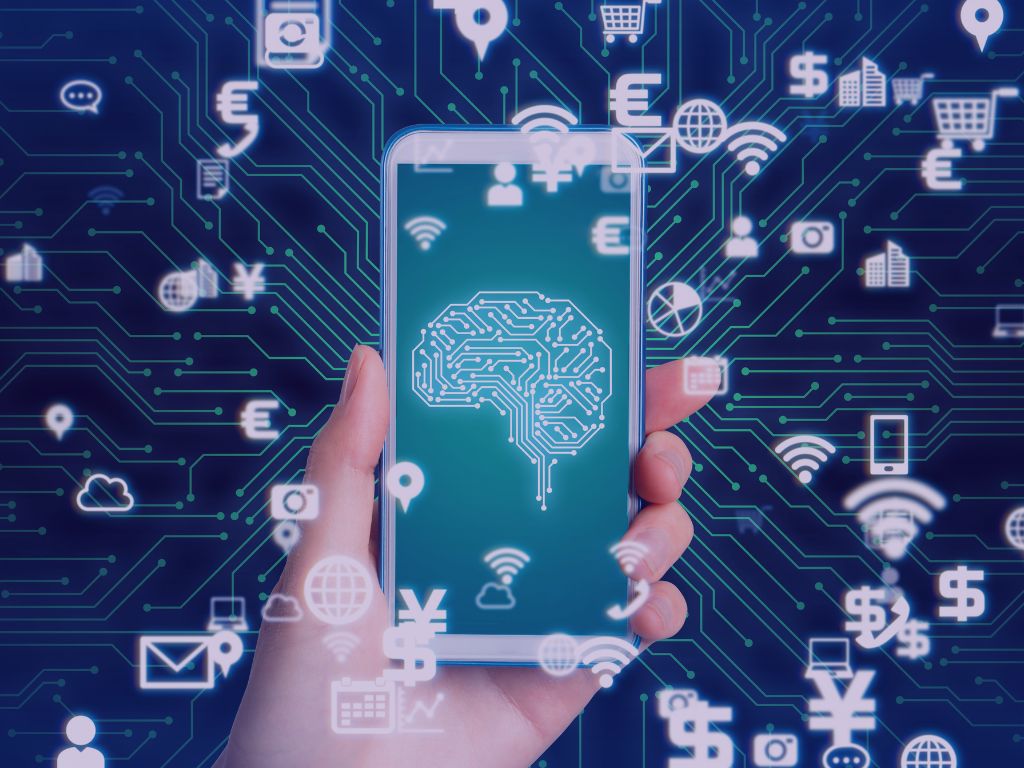
Implementing AI Tools: Best Practices for Immediate Impact
So you’ve identified the perfect AI marketing tools to supercharge your campaigns – fantastic! But acquiring the technology is only the first step. The true game-changer lies in how effectively you implement these intelligent systems. Think of it less as installing software and more as onboarding a new, highly capable team member. A strategic approach to implementation ensures immediate impact and sustained success.
Here are the best practices to integrate AI tools seamlessly and unlock their full potential:
1. Start Small, Scale Strategically
Resist the urge to overhaul your entire marketing operation overnight. A phased approach is almost always more effective and less disruptive. Identify one or two specific pain points or campaigns where AI can provide immediate, measurable value. Run pilot programs, gather insights, and then gradually expand its application across your organization. This builds confidence within your team, allows for refinement of processes, and minimizes potential risks.
2. Define Clear KPIs and Success Metrics
Before you even log into your new AI tool, clearly define what success looks like for each implementation. Are you aiming to increase conversion rates by X%? Reduce ad spend waste by Y%? Improve content output by Z? Establishing clear Key Performance Indicators (KPIs) allows you to accurately measure the AI’s impact, justify your investment, and make data-driven decisions about its continued use and optimization. If you can’t measure it, you can’t improve it.
3. Integrate Thoughtfully with Your Existing Stack
As discussed, AI tools thrive on data. For maximum efficiency and holistic insights, ensure your chosen solutions are seamlessly integrated with your existing CRM, analytics platforms, ad managers, email systems, and other marketing technologies. Data silos cripple AI’s potential. A unified data flow empowers the AI to provide comprehensive insights and automate actions across your entire marketing ecosystem. Invest time in setting up these connections correctly from the outset, leveraging native integrations, robust APIs, or integration platforms like Zapier.
4. Train Your Team and Foster Adoption
This is perhaps the most critical step. Your marketing team isn’t being replaced; they’re being empowered. Provide comprehensive training on how to use the AI tools, interpret their outputs, and leverage their capabilities to enhance their own work. Address any anxieties about job displacement by emphasizing AI as a co-pilot that handles the mundane, repetitive, and data-heavy tasks, freeing them for strategic thinking, creative ideation, and human-centric tasks. Foster a culture of experimentation, continuous learning, and collaboration with the AI.
5. Prioritize and Maintain Data Quality
“Garbage in, garbage out.” The effectiveness of any AI tool is directly proportional to the quality of the data it processes. Prioritize data cleanliness, accuracy, consistency, and completeness across all your sources. Implement robust data governance practices to ensure your AI is always working with reliable information, leading to more accurate insights, better predictions, and more effective automation. Regularly audit your data sources and cleansing processes.
6. Monitor, Analyze, and Iterate Continuously
AI is not a “set it and forget it” solution. It’s a continuous learning loop. Regularly monitor the performance of your AI-driven campaigns and processes. Analyze the data it provides, identify areas for improvement, and be prepared to iterate on your strategies based on its insights. The more data and feedback the AI receives, the smarter and more effective it becomes. Human oversight is essential for guiding this learning process, course-correcting when necessary, and ensuring alignment with your broader business goals.
7. Don’t Abandon the Human Touch
While AI handles the heavy lifting of data analysis, personalization at scale, and automation, the human element remains irreplaceable. AI amplifies your capabilities, but it cannot replace strategic vision, emotional intelligence, compelling storytelling, or genuine human connection. Use AI to free up your team to focus on the truly human aspects of marketing – creativity, empathy, relationship building, and high-level strategic thinking that differentiate your brand and build lasting loyalty.
By embracing these best practices, you’ll ensure your investment in AI marketing tools translates into tangible results, transforming your operations and positioning your brand at the forefront of the digital landscape.
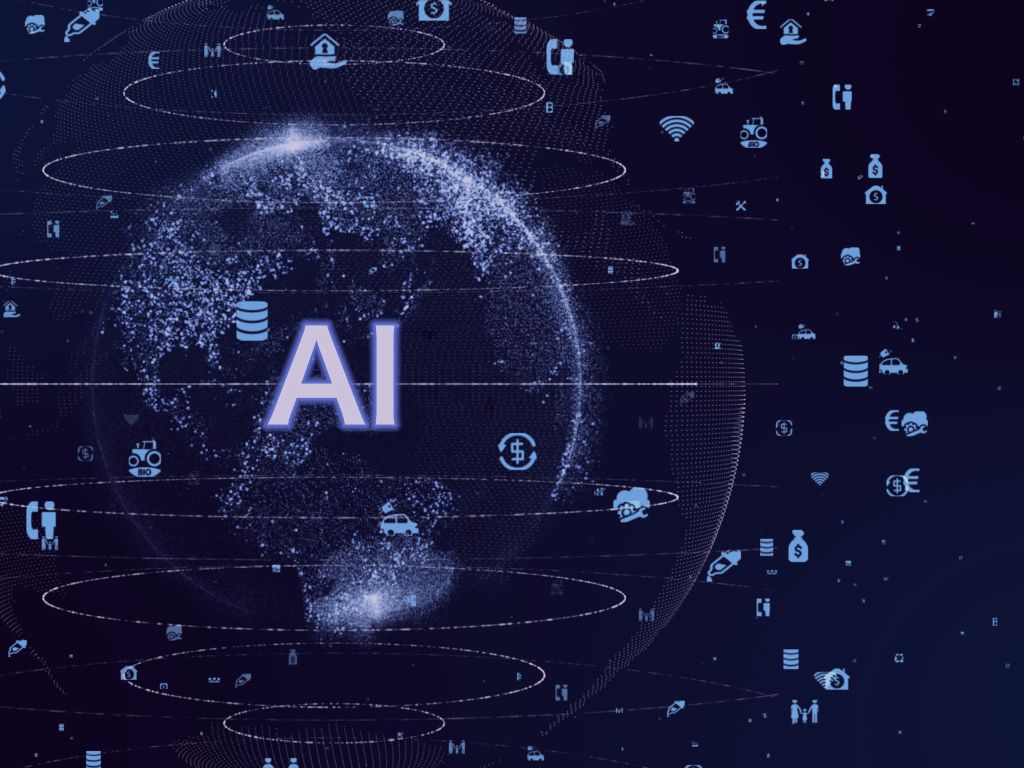
The Future of AI in Marketing: What to Expect Next
If you think AI in marketing is impressive now, buckle up. We’re merely at the foothills of its potential. The rapid pace of innovation, particularly in areas like machine learning, generative AI, and natural language understanding, promises a future where AI isn’t just a tool, but an indispensable, intelligent partner shaping every facet of your marketing strategy.
Here’s a glimpse into what’s on the horizon:
Even Deeper Personalization & Predictive Power
Current AI personalization is powerful, but the next wave will be truly hyper-individualized. Expect AI to move beyond past behaviors to anticipate future needs, desires, and even emotional states in real-time. This means:
- Proactive Engagement: AI identifying potential customer pain points before they manifest and delivering solutions or content preemptively.
- Emotional AI: Tools that can infer sentiment and adjust messaging or offers based on a customer’s mood or stress levels, leading to genuinely empathetic interactions.
- Micro-Moment Optimization: Delivering the perfect message at the precise micro-moment of intent, whether it’s a fleeting thought or an active search.
The Rise of Truly Autonomous AI Marketing Agents
Imagine an AI system that doesn’t just assist, but proactively manages and optimizes entire campaigns from conception to execution, learning and adapting autonomously. These “AI marketing agents” will:
- End-to-End Campaign Management: Automatically identifying market opportunities, designing campaign strategies, allocating budgets, creating content, launching ads, and optimizing performance without constant human intervention.
- Self-Healing Campaigns: AI detecting anomalies or underperformance and automatically adjusting targeting, bidding, or creative elements to correct course in real-time.
- Goal-Oriented Optimization: Marketers will define high-level business goals (e.g., “increase market share by X% in Y segment”), and AI will devise and execute the optimal marketing strategy to achieve it.
Generative AI’s Creative Leap
While current generative AI excels at first drafts and basic content, the next evolution will see it create highly nuanced, brand-aligned, and even emotionally intelligent content across all formats:
- Multi-Modal Content Generation: AI will seamlessly generate not just text, but compelling images, videos, audio, and interactive experiences from simple prompts, all tailored to specific platforms and audiences.
- AI-Driven Creative Strategy: Beyond generating variations, AI will analyze market trends, competitor creatives, and audience preferences to suggest entirely new creative directions and campaign narratives.
- Personalized Storytelling: AI crafting unique narrative arcs for individual customers, adapting tone, style, and content based on their evolving relationship with the brand.
Ethical AI, Transparency, and Trust
As AI becomes more pervasive, the focus on responsible and ethical AI will intensify. This means:
- Explainable AI (XAI): Tools that can not only make recommendations but also clearly explain why they made those recommendations, fostering trust and allowing marketers to understand and refine AI logic.
- Bias Detection & Mitigation: AI tools will become more sophisticated at identifying and correcting algorithmic biases in targeting, content creation, and personalization to ensure fair and equitable marketing practices.
- Data Privacy & Compliance: Even more robust features to ensure AI processes and utilizes data in full compliance with evolving privacy regulations (like GDPR, CCPA, etc.), putting consumer trust at the forefront.
Multi-Modal & Conversational AI Dominance
The way consumers interact with brands will continue to evolve, with AI powering more natural and intuitive interfaces:
- Advanced Conversational Commerce: AI chatbots and virtual assistants will handle increasingly complex queries, guide customers through entire purchase journeys, and provide personalized support that feels genuinely human-like.
- Voice SEO & Marketing: Optimizing for voice search will become paramount as more interactions shift to smart speakers and voice assistants, with AI analyzing spoken queries for intent and context.
- Immersive Experiences: AI will drive personalized experiences in augmented reality (AR) and virtual reality (VR) environments, allowing brands to connect with consumers in new, highly engaging ways.
The future of AI in marketing isn’t about replacing the human marketer, but about augmenting their capabilities to an unprecedented degree. It will free marketing teams from the mundane, data-heavy tasks, allowing them to focus on high-level strategy, creative vision, and the irreplaceable human element of building genuine brand connections. Staying agile, embracing continuous learning, and understanding how to effectively collaborate with these intelligent systems will be the hallmarks of successful marketers in the years to come.
Boosting Your Campaigns: Final Thoughts on AI Integration
We’ve journeyed through the transformative power of AI in marketing, from revolutionizing content creation and hyper-personalization to supercharging ad optimization and predictive analytics. If there’s one resounding takeaway, it’s this: AI isn’t a luxury; it’s the new baseline for competitive marketing.
In a world where consumer attention is fragmented, data volumes are staggering, and competition is fierce, relying on traditional methods is akin to bringing a knife to a gunfight. AI equips you with the precision, speed, and foresight needed to not just keep pace, but to lead.
Think of AI as your ultimate force multiplier. It takes on the repetitive, data-intensive tasks that bog down your team, freeing them to unleash their creativity, focus on high-level strategy, and build the genuine human connections that truly differentiate your brand. It moves your marketing from guesswork to data-driven science, from broad strokes to hyper-targeted precision, and from reactive responses to proactive insights.
The integration of AI into your marketing workflows isn’t about replacing human ingenuity; it’s about amplifying it. It’s about empowering your team to achieve more, understand customers deeper, and deliver unprecedented ROI. The time to embrace this technological leap isn’t tomorrow, it’s today. Your competitors are already leveraging its power; ensure you’re not left behind.
Start small, learn fast, and iterate. The journey into AI-powered marketing is a continuous one, but the rewards in terms of efficiency, customer satisfaction, and ultimately, business growth are profound. Welcome to the future of marketing; it’s intelligent, it’s impactful, and it’s here now.
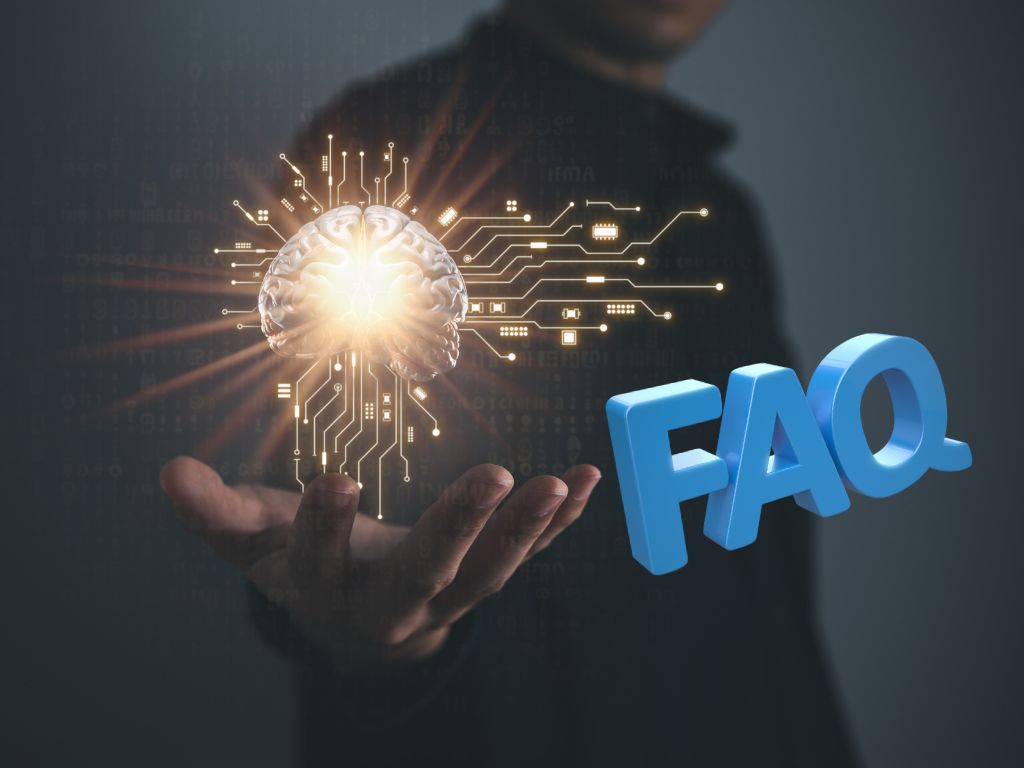
FAQs for “Best AI Marketing Tools: Top Picks to Boost Your Campaigns Now”
What are AI marketing tools?
AI marketing tools are software that uses artificial intelligence to automate, analyze, and optimize marketing tasks, from content creation to ad targeting.
Do I need tech skills to use AI marketing tools?
No. Many AI tools are beginner-friendly with drag-and-drop editors, templates, and step-by-step guidance.
Which AI marketing tool is best for small businesses?
It depends on your priority. For social media, Buffer AI Assist is great. For content, Jasper or Copy.ai work well. For ads, try Revealbot or AdCreative.ai.
Are AI marketing tools expensive?
Not necessarily. Many offer free trials or entry-level plans. Costs scale with features, automation depth, and usage volume.
Can AI replace human marketers?
AI can handle repetitive, data-heavy tasks, but it works best as a co-pilot. Humans provide strategy, creativity, and emotional intelligence.
How do I choose the right AI marketing tool?
Start with your main goal social media, SEO, email, ads and pick a tool that integrates with your current workflow. Test it with a free trial first.
Will AI make my marketing feel less personal?
No if used correctly, AI can personalize content at scale while still allowing you to add your brand’s unique tone and voice.
How do I measure AI’s impact on my campaigns?
Track KPIs like engagement, click-through rates, conversions, and time saved before and after AI implementation.
Are AI marketing tools secure?
Reputable tools use encryption and comply with privacy laws like GDPR and CCPA. Always check their security and data policies before connecting accounts.
One Response to Best Ai Marketing Tools: Top Picks to Boost Your Campaigns Now